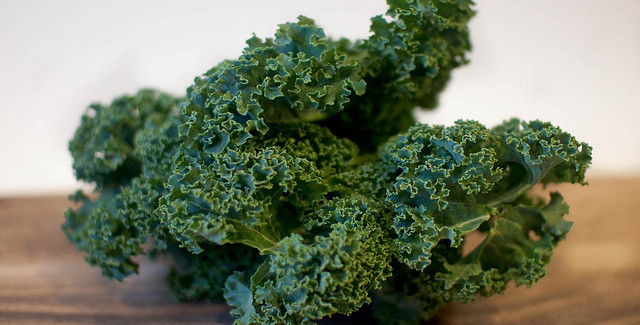
Kale Yeah!
Is it a superfood? Is it toxic? Recently, there’s been a lot of news surrounding the health benefits and safety of kale. We talked with Best Food Facts registered dietitian Sarah Downs to answer some questions about this cruciferous vegetable.
1. Is kale poisonous?
Quick Answer: No
Recently, there’s been a lot of news reporting on the toxicity of kale due the levels of thallium (a heavy metal). Research from an alternative medicine researcher noted an association between eating large amounts kale and the risk of thallium toxicity, which may lead to chronic fatigue, skin problems and a slew of other health conditions.
The good news for kale lovers (and this dietitian!)? This correlation was not based on peer-reviewed research and larger studies will need to be completed with similar results before any conclusions can be made. As of right now, there’s no reliable evidence to suggest you need to watch your kale intake.
Like many things, the “dose makes the poison,” or – too much of anything can be dangerous. However, for the majority of people, it’s highly unlikely that you’re eating anywhere near a dangerous amount. It’s also important to note that thallium is not unique to kale and is found in many different vegetables, so you would have to cut out lots of healthy foods in order to completely avoid it. We know for a fact that there are many health benefits from eating a variety of fruits and vegetables, including kale!
2. Can kale be bad for my thyroid health?
Quick Answer: No
Some articles have indicated that eating too much kale may impact thyroid health and may even cause an underactive thyroid or hypothyroidism. The thyroid is responsible for all aspects of the body’s metabolism including how fast you burn calories and how fast your heart beats.
The worry is that there are compounds called thiocyanates (that affect the thyroid) found in cruciferous vegetables like kale. However, the quantity of thiocyanates found in the typical amount of kale consumed is so small that it would have no impact on health. You would have to consume a couple of large bunches of raw kale (cooking inactivates thiocyanates) each day before there would be any impact. The positive health benefits that come from consuming different fruits and veggies (kale included!) outweigh the tiny impact kale may have on the thyroid.
If you are still concerned about your thyroid health, be sure to check with your doctor. He or she will be able to check your thyroid function and can work with you to develop a plan that fits your needs.
3. Is kale a superfood?
Quick Answer: Yes
Kale, a member of the Brassica family, along with broccoli, cauliflower and cabbage, is rich in many different nutrients. One cup of chopped kale contains around 35 calories, 206 percent of the daily value (DV) of vitamin A, 134 percent DV of vitamin C, and a whopping 684 percent DV of vitamin K! It is also a source of copper, potassium, iron, manganese, and phosphorus. Due to the high amounts of antioxidants (vitamins A, C and K), kale has earned the reputation as a potential cancer fighter. Kale also contains carotenoids and flavonoids – types of antioxidants that protect cells from being damaged. Fiber is also a key player in kale’s superfood status. The soluble fiber helps to lower bad LDL cholesterol and the insoluble fiber can help keep the digestive system healthy.
While there is currently not a regulated or scientific term for what a “superfood” constitutes, typically superfoods are nutrient dense, or foods that have many nutrients with relatively few calories. Here is a great video from the University of Wisconsin Hospitals and Clinics that talks about superfoods.
Kale is a great addition to the diet, but it’s important to mix it up by including other fruits and vegetables as well!
Looking for more info on kale? Check it out here!
Photo: “Kale!” by Bobbi Bowers is licensed under CC-BY-ND 2.0


























